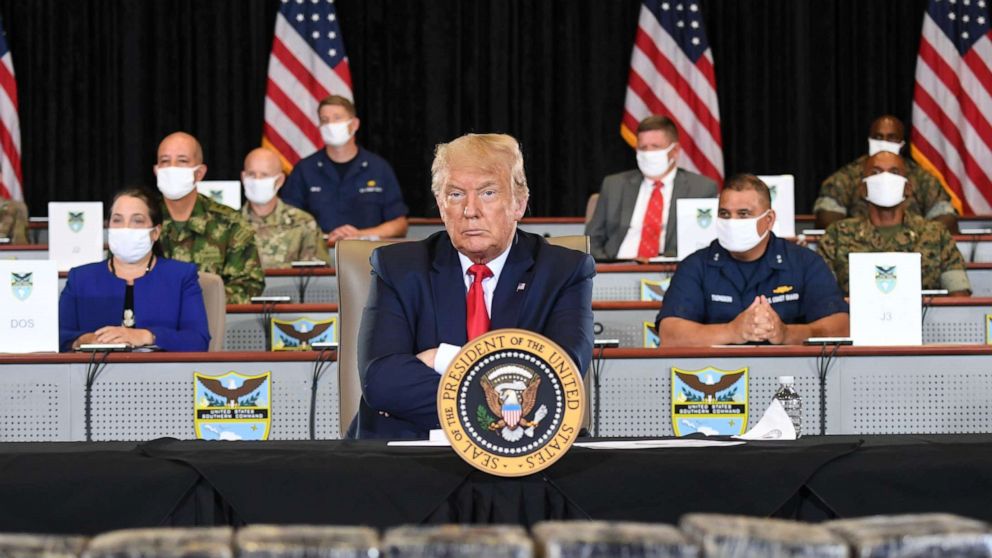Republican governors break from Trump amid growing calls for mask mandates
Arkansas Gov. Asa Hutchinson on Thursday became the latest Republican governor to issue an executive order mandating residents wear face coverings in public, following the lead of GOP governors in Alabama and West Virginia, desperate to contain a record-breaking surge in COVID-19 cases and hospitalizations.
More and more, Republican politicians are mandating masks statewide, breaking from President Donald Trump who still resists the idea even though he finally wore one in public, once, last weekend.
CVS and Target on Thursday joined a growing list of nationwide retailers, including Walmart, requiring masks in their stores, and this week a top health official said if everyone wore a mask, the outbreak could be "brought to its knees" by this fall.
Despite the earlier arguments over personal choice and freedom, political pressure appeared to be building for a nationwide mask mandate other countries like South Korea implemented early on with significant results.
Nearly two-thirds of Americans -- and an increasing number of Republicans -- now say they're wearing face masks when they leave the house, according to an Axios-Ipsos poll.
The increasingly urgent health situation could be making the political debate moot.
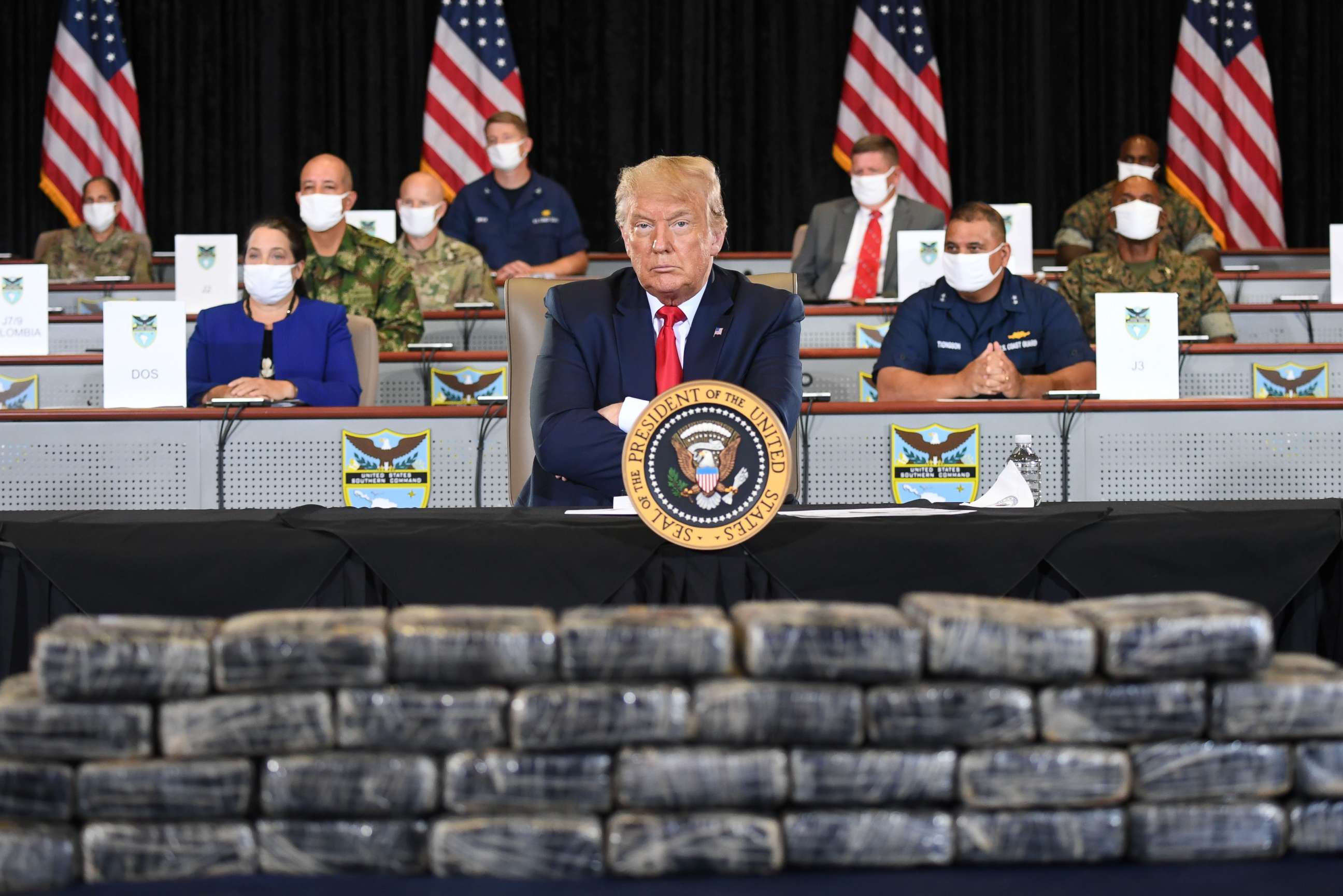
Hutchinson gave in after long resisting a statewide stay-at-home order, as Arkansas sees record-breaking number of new infections.
"The number of COVID-19 cases, hospitalizations and deaths are numbers that speak for themselves and indicate that we need to do more," Hutchinson said in a press conference in Little Rock. "I want everybody to understand that this is a mandate. It does carry consequences," he said about violating the order, punishable by a fine of up to $500.
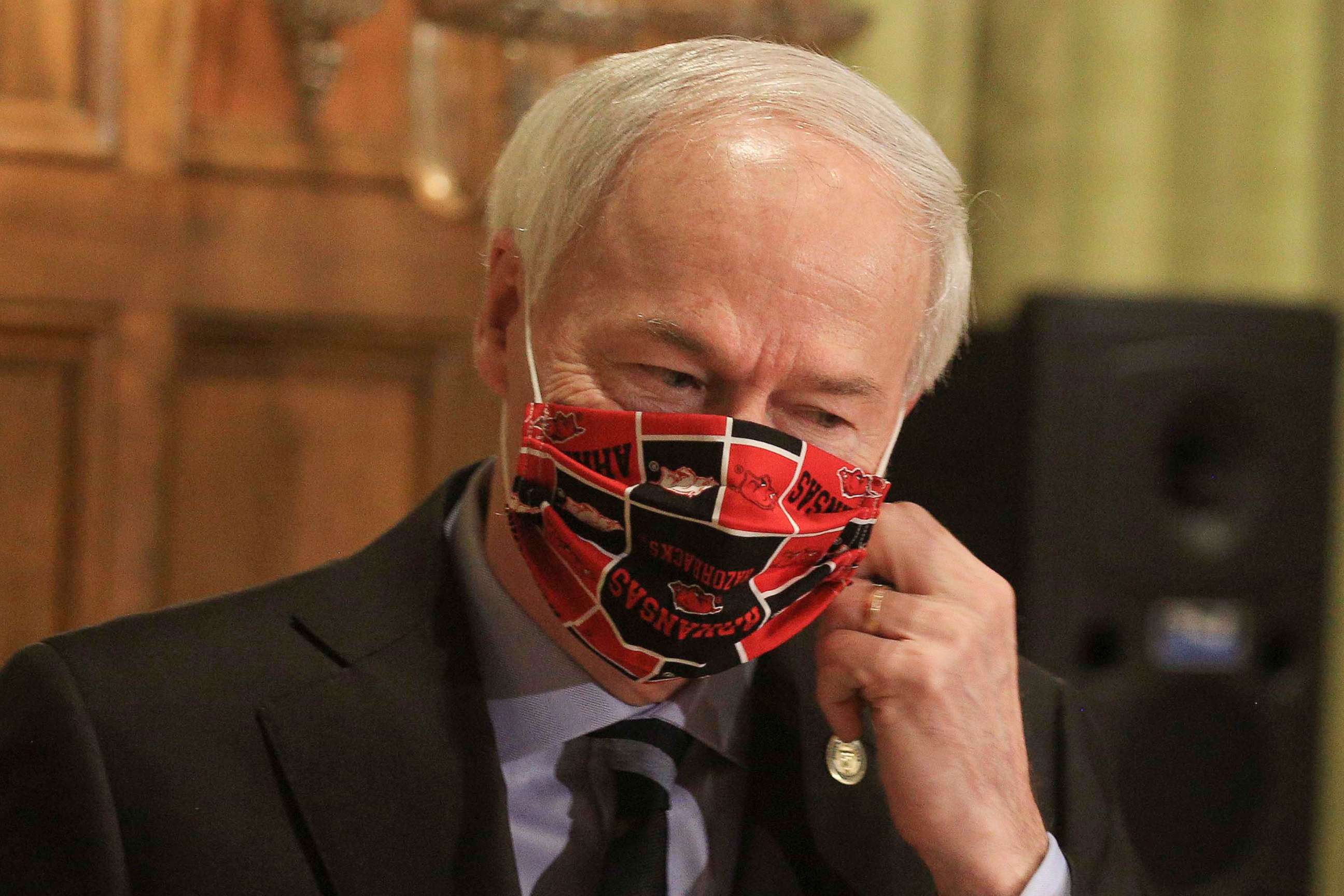
At the same time, Georgia Gov. Brian Kemp, a Republican, on Thursday sued the city of Atlanta over its requirement to wear masks in public after voiding at least 15 local mask mandates late Wednesday, calling them legally "unenforceable."
Wearing masks or facial coverings in public has become a polarizing issue at all levels of American government.
Health experts say it shouldn't be.
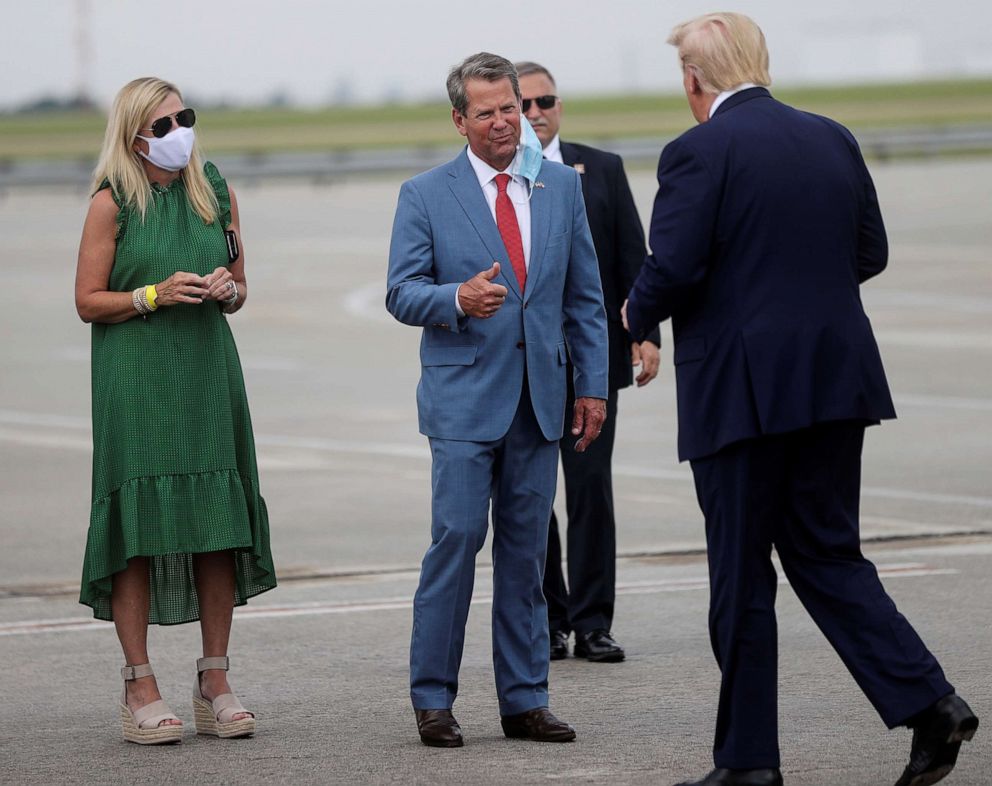
CDC Director Dr. Robert Redfield twice this week said COVID-19 could be controlled in one to two months in America if roughly 90% of people wore masks.
"If everyone in this nation would just take on a face covering, practice excellent hand hygiene and be smart about their distancing in crowds, we can bring this outbreak to its knees in two, four, six, eight weeks," Redfield said on a call with reporters Wednesday.
With the addition of Arkansas and Colorado on Thursday, and Alabama and Montana on Wednesday, roughly half of all states now require face masks in public.
But some of the hardest-hit states won't go all the way.
Ohio and Texas, for example, require masks only in counties where coronavirus infection rates have hit a high level, though cases are surging statewide.
Republican Gov. Mike DeWine of Ohio, in an address Wednesday night said, "our state's life is now in danger" but stopped short of implementing a statewide mask mandate.
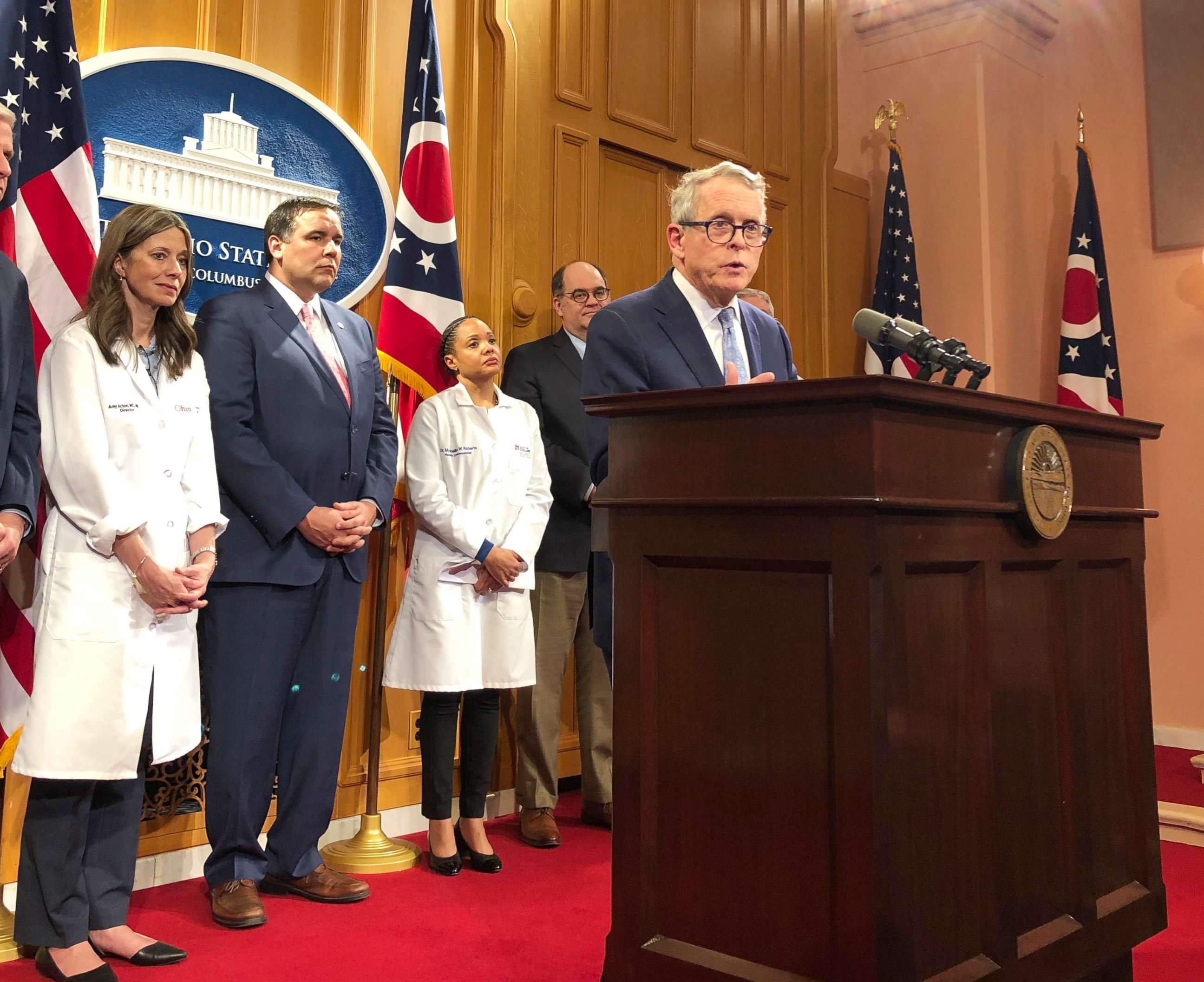
"That discussion is for another time," he said, amid a four-figure daily increase in cases.
David Pepper, chair of the Ohio's Democratic Party, commended some of DeWine's efforts early in the pandemic but said he was "cowardly" for not making a mask mandate, calling it "a common sense step."
"This shouldn't be a partisan issue. It's bipartisan, in support. But a few voices on the far right, are somehow intimidating, some leaders like Mike DeWine from doing the right thing," said Pepper, pointing to other states with Republicans governors making the call.
"Shutting down businesses and schools, those are not easy choices. The mask is easy," he added. "Among difficult decisions that will have to be made, the only reason it's difficult here versus almost any other modernized country is because of right wing politics that's fueled by Trump, making some people act just absolutely irrationally."
"That Kemp is gonna do what Abbott did and forbid local government from doing the right thing is appalling. And he'll certainly cost lives for that step as well," Pepper said.
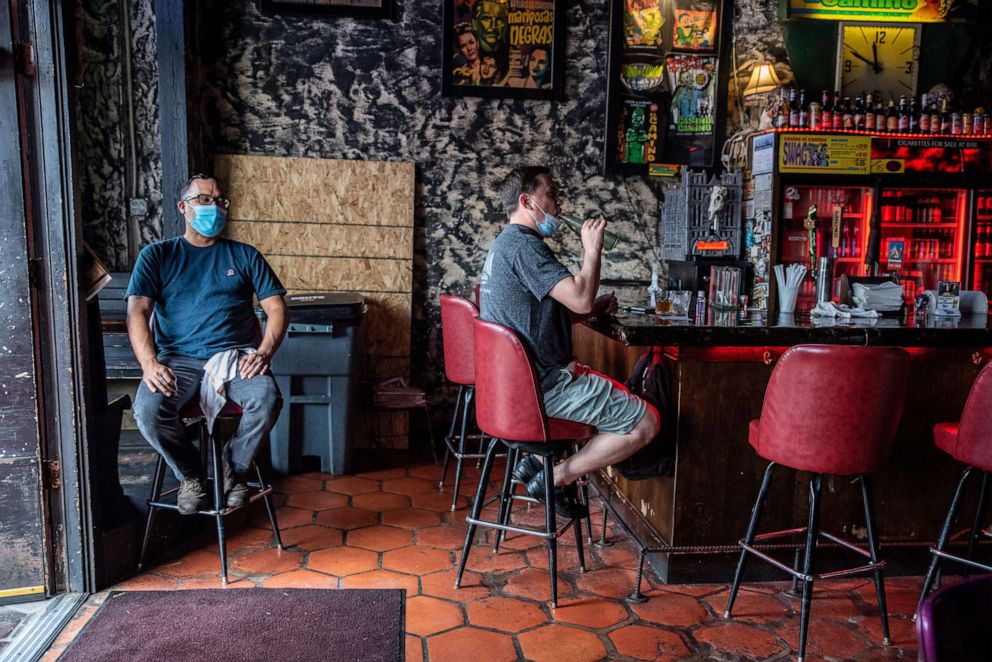
In Texas, where cases are surging, Republican Gov. Greg Abbott in April similarly blocked municipalities from imposing fines for breaking masks mandates. In a reversal, he's urging more Texans to wear masks.
Republican Sen. Marco Rubio of the hard-hit state of Florida -- where Gov. Ron DeSantis has come under fire for recent comments downplaying the virus -- has also weighed in on Twitter, where he dons a mask in his profile picture, saying, "why not do it?"
President Trump's resistance trickles down to his supporters, Pepper says, and makes it harder for businesses to enforce mask rules.
"If it isn't yet law, they have to fight with all their customers," he added. "By not having a requirement, you're making it harder for people to do the right thing here, including businesses who risk backlash if they put up a no mask, no entry sign."
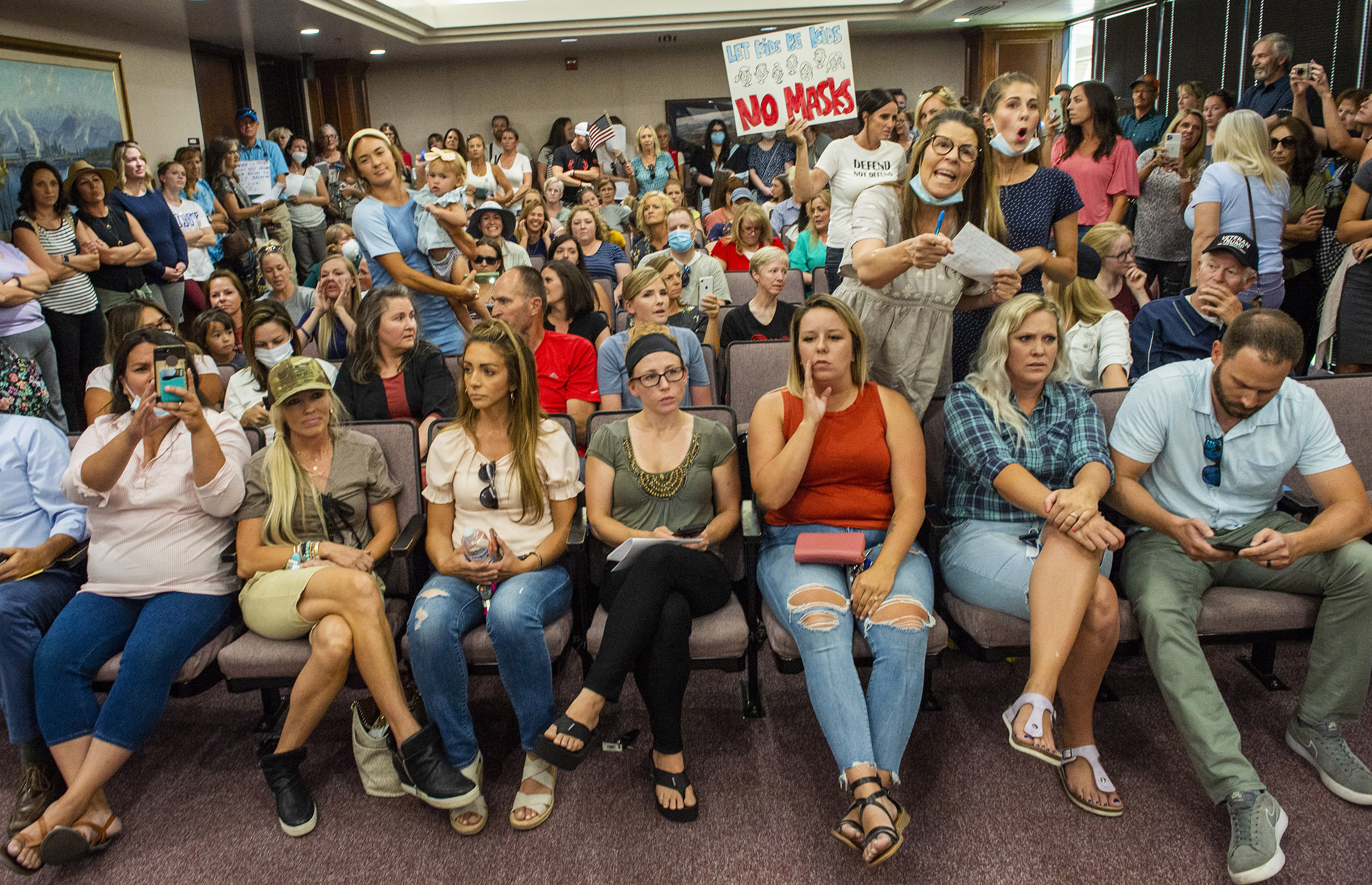
The IHME University of Washington model, often cited by the White House, now predicts more than 40,000 lives could be spared if Americans universally wore masks.
White House press secretary Kayleigh McEnany on Thursday rejected the idea of national mask mandate, saying, "We leave it to localities to make the decisions with regards to face coverings, and CDC guidelines remain the same today, recommended but not required."
According to the American Bar Association, the U.S. government does have the authority in a pandemic to mandate practices like masks for public safety, though the responsibility heavily falls on states.
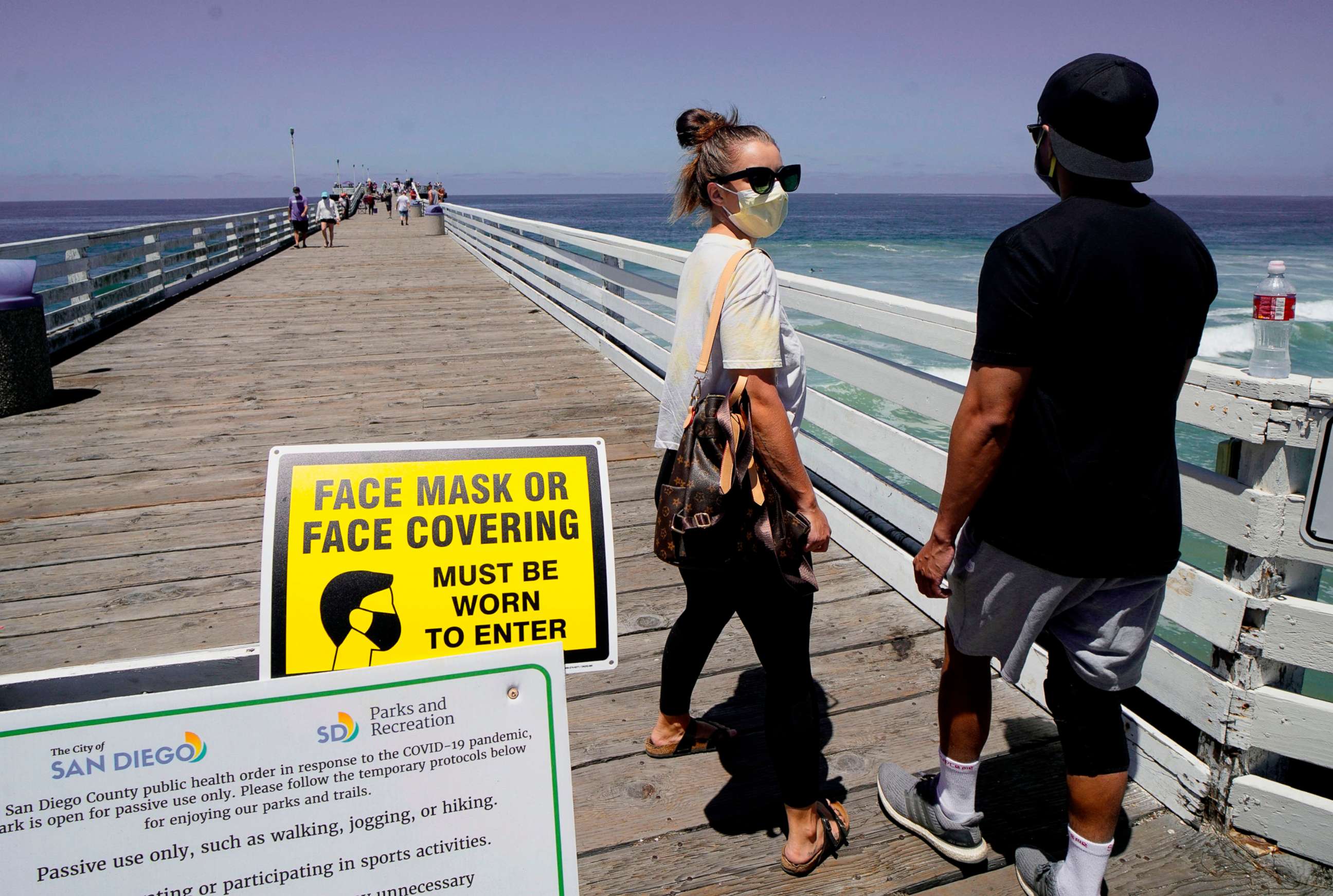
Dr. Sara Tariq, a professor of medicine and associate dean at the University of Arkansas Medical School, acknowledged that existing data showing masks prevent the spread of the novel virus is "not yet comprehensive, but it is compelling."
"There are more and more facts coming out supporting that in addition to physical distancing, we need to have 100% mask use," said Tariq. "Our leadership should be compelled to be thinking really hard about mandating mask use when the level of harm without it, in most people's opinion, is morally unacceptable."
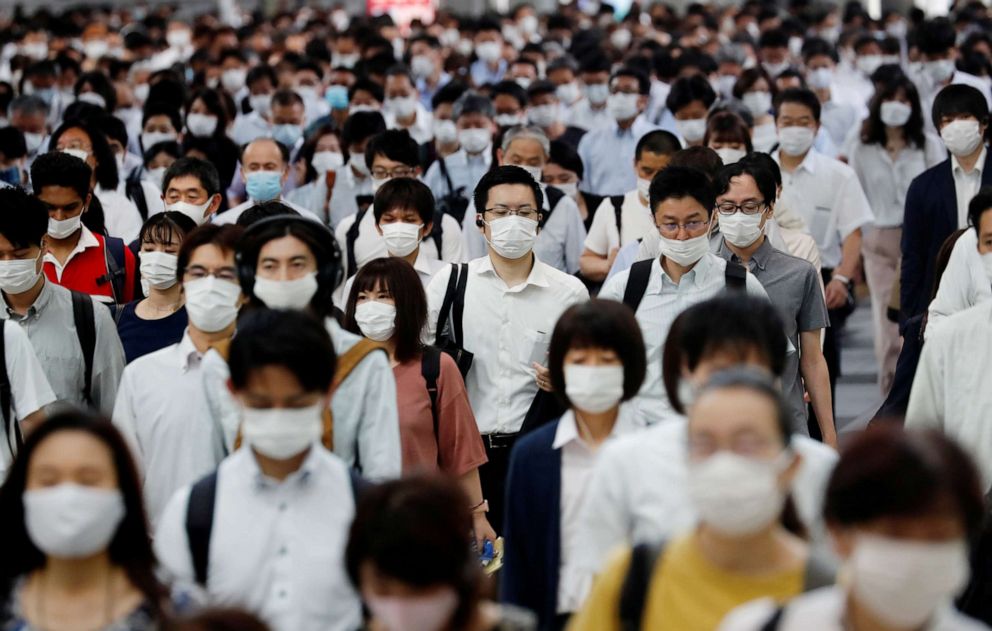
"Our sense of self-liberty is very strong, but I worry that it's those same things that make us amazing -- our liberty, our individualism, our freedom -- in this situation, are really harming us," Tariq said. "Our country is going to have to atone and reconcile how poorly we have responded to this pandemic."
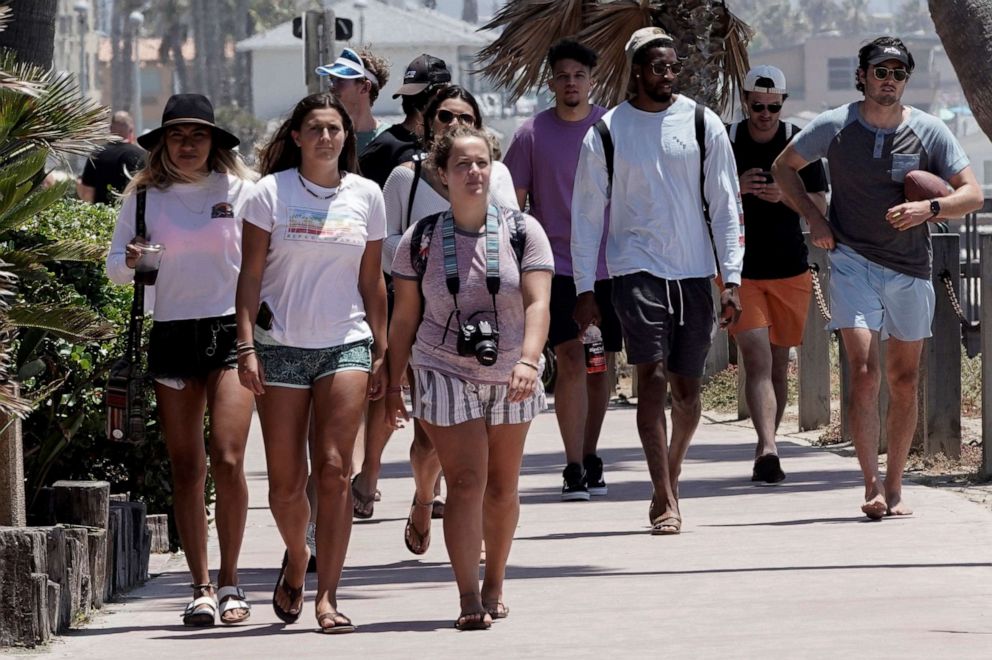
She also said because the pandemic came to the U.S. later than in Asia and Europe, the U.S. missed the chance to slow the spread from the start.
"The disease came to us a little bit later, so we had an opportunity to take a look at the data from other countries which, recognizably was limited at the time, but we had an opportunity to implement things like social distancing and masking," Tariq said. "We've lost that opportunity because of lack of data, poor understanding of the disease, a slow response, and because we culturally are a different nation."
"I do believe though, we should be able to change ourselves," she added. "We have no choice but to change ourselves when we see data."
